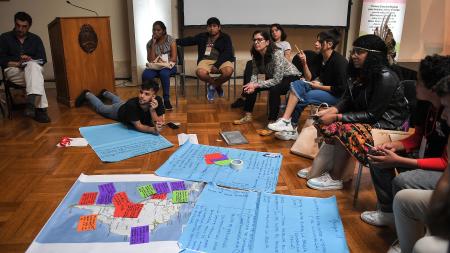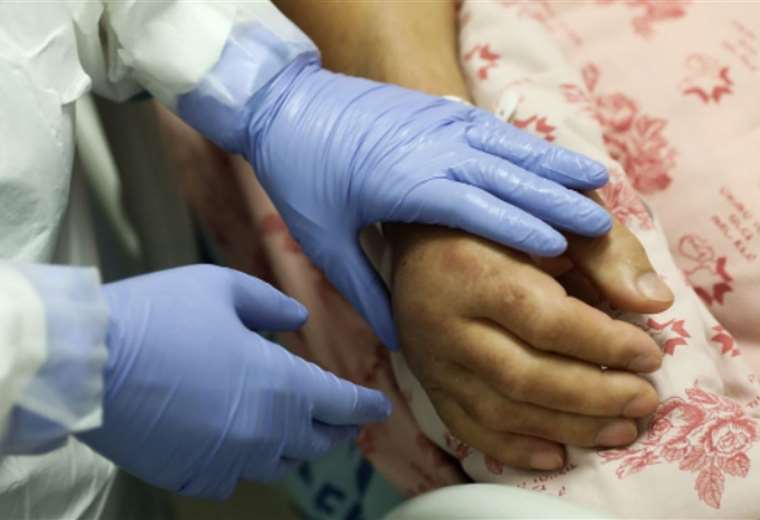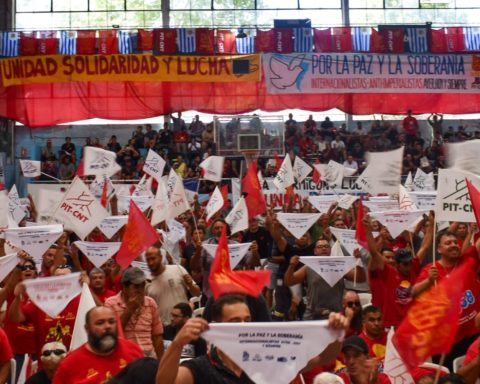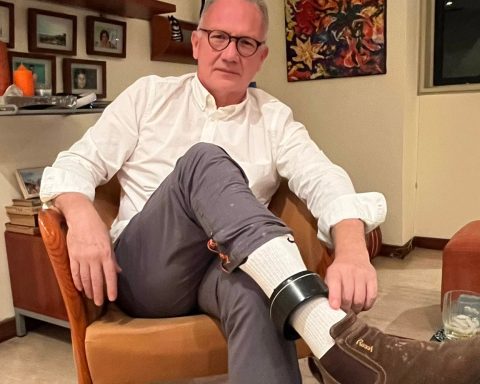Garbage dumps, floods, droughts and water, land and air pollution were the main problems related to the environment formulated by more than 50 children and adolescents from Latin America and the Caribbean who participated in the preparation of a text in relation to to how climate change impacts their present and future so that it will be considered by the United Nations Children’s Committee.
The San Martín Palace, headquarters of the Argentine Foreign Ministry and one of the national State agencies that sponsors the initiative, hosted the first day of the so-called First Regional Consultation for Latin America and the Caribbean for the drafting of General Comment No. 26 -a United Nations document- on the Rights of Children and Adolescents and the Environment, which will focus on how to reverse the impact of climate change on children in the region.
During today’s session, the first worldwide in relation to the preparation of the General Commentgovernment experts appointed by the participating States, multilateral organizations and NGOs met for the construction of consensus and proposals to reverse environmental deterioration with a focus on children.
With the Ombudsman for Children and Adolescents as hostmore than 50 children and adolescents were brought together to address the problems of the environment and climate change on behalf of Argentina, Uruguay, Brazil, Dominican Republic, Colombia, El Salvador, Peru, Chile, Ecuador and Trinidad and Tobago.
The youngest talked in a round with representatives of the Ombudsman about the issues they observe daily in the environment where they live, from a sheet where they captured “something they liked” about the place where they lived, along with an “environmental problem” that they recognized in that territory.

From this activity, the organizers gave the floor to each participant so that they could express what they had reflected on their territories, which allowed them to draw up a joint map of the region that included the main concerns of the young people.
Among the most mentioned problems, echoed among the participants were those related to the landfills, floods, droughts and pollution of water, land and air.
Problems related to the extraction of natural resources and activities such as illegal mining in Peru, the social difference in Chile, the floods in the Dominican Republic and its relationship with indigenous communities in almost the entire region.
“I like the green spaces where I live, but I am concerned about the burning of wetlands since it affects the environment and also us, along with the industrial cordon, which pollutes nearby neighborhoods and dumps waste into the Paraná River, the that we can’t get into it because it’s contaminated,” said Santiago, 17 years old, from the Santa Fe town of San Lorenzo.
For its part, Carlos, 18 years old and from the municipality of Fortaleza, in Brazil, highlighted the “strength of children to fight for their rights” and pointed out as worrying the “consequences of the great social difference” in relation to the smallest.
“I am very happy to come and I felt listened to by the rulers, the organizers and the boys, who are here to speak the same as me,” he said after the meeting.

In relation to Argentinayoung people from the jurisdictions of CABA, Buenos Aires, Salta, Neuquén, Río Negro, Santa Fe and also belonging to the Wichi and Mapuche communities.
“From his perspective, the reality of a 12-year-old boy, a 15-year-old boy or an 18-year-old boy is going to be very different. because their perspective in their own words is what we are interested in seeing reflected in the document,” he told Télam Cecilia Sgariglia, director of the Participation and Protagonism Area of the Ombudsman for Children and Adolescents who participated in the meeting.
And he added that “the participation and listening of children is a fundamental axis for international organizations, as in this case the Committee on the Rights of the Child. For this reason, for this regional consultation there is a special commission where they are listened to and we work with all the impressions, perspectives and voices of the boys and girls of the region”.
Despite the different realities present in the regionmost of the young people highlighted garbage as one of the main problems of its territory, and its subsequent impact on the environment, along with the droughts.
About, Andrea, from Ecuador, remarked that “drought affects food production,” and assumes a “problem” for his region, where “one in three children suffers from chronic malnutrition”.

In parallel, during the debate that took place in the commission that brings together government experts and international organizations, a debate on the right of access of children and adolescents to information on the environment, where several speakers highlighted the importance of “clear and accessible information” and “education and environmental awareness”.
Consulted by this agency for the content of this discussion, Argentina’s Mary Beloff, candidate elected this year to join the UN Committee on the Rights of the Child, stressed that “very different problems have been raised, but they are Latin American problems. So it is clear that the document has to take into account regional approaches”.
Finally, he concluded that “the challenge is that tomorrow, in the document that remains, it can be translated into what is substantial so that the countries feel that they have obligations that they cannot escape.”


















